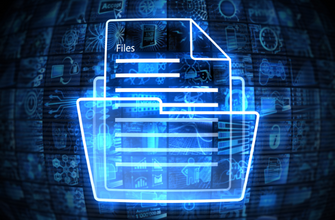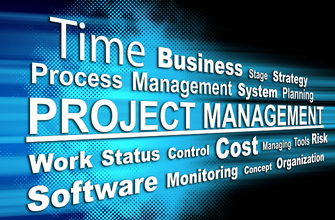321 500 HUF + VAT (850 EUR + VAT)
ISTQB Advanced Test Automation Engineer live course - Dates and application
First training day: 7 January 2026, Further training days: 8., 9.
321 500 HUF + VAT (850 EUR + VAT)
First training day: 15 April 2026, Further training days: 16., 17.
321 500 HUF + VAT (850 EUR + VAT)
First training day: 8 July 2026, Further training days: 9., 10.
321 500 HUF + VAT (850 EUR + VAT)
First training day: 7 October 2026, Further training days: 8., 9.
321 500 HUF + VAT (850 EUR + VAT)
Applying for closed-group training
Application without a date
Enhance your test automation skills with the ISTQB Advanced Test Automation Engineer exam preparation course! Based on the latest version 2.0 syllabus, this training covers test automation architecture design, CI/CD integration, and maintainable automation solutions. Learn how to design, implement, and continuously improve efficient test automation solutions for scalable and reliable testing.
Prepare for the internationally recognized ISTQB certification and take your expertise to the next level!
This training is ideal for test automation engineers, software developers involved in testing, test managers, and QA analysts looking to deepen their automation expertise. It’s also recommended for professionals responsible for designing, developing, and maintaining test automation frameworks, as well as those integrating automation into CI/CD pipelines. If you want to master advanced test automation skills and earn a globally recognized ISTQB certification, this course is for you.
- ISTQB Certified Tester Foundation Level certificate
- At least 18 months of experience in software testing
- English language skills, as both the course material and the exam are in English
Take your test automation to the next level with ISTQB Advanced Test Automation Engineer v2.0!
Test automation plays a key role in modern software development, but a poorly built solution can do more harm than good. The ISTQB continuously updates the material for each certification and releases new versions every few years. The latest version 2.0 syllabus has been extensively updated to provide up-to-date theoretical knowledge for the technical design of test automation systems. The new version puts more emphasis on the technical design of maintainable automation architectures, the creation of the necessary tools and infrastructure, and the integration into CI/CD processes. If you want to take your automation processes to the next level, reduce manual testing costs, and ensure faster, more reliable time to market for your software, this accredited training is for you! Plus, completing it will prepare you to achieve the ISTQB international certification, which can be a major advantage in your career!


Main topics:
- The purpose and role of test automation - You will learn about the benefits, challenges and place of test automation in the software development lifecycle.
- Preparing for automation - Learn how to build the right infrastructure and select the right tools for an effective test automation solution.
- Test Automation Architecture - You will learn the principles of designing layered test automation frameworks and scalable solutions.
- Implementing automated tests - You will understand the test automation development process and how to analyse and manage risks.
- CI/CD integration and deployment strategies - Learn how to integrate automated testing into modern development and operations processes.
- Automation results and metrics - You will be able to collect, analyse and report on automated test results.
- Test automation validation - Learn techniques for validating and debugging test automation infrastructure.
- Continuous improvement and optimisation - You will learn how to keep test automation solutions maintainable and improve them in the long term.

After completing the training, you will be able to, among other things:
- Design and implement a maintainable, scalable test automation framework.
- Integrate automated tests into CI/CD processes and DevOps environments.
- Effectively select and configure the right test automation tools.
- Interpret and report the results of automated tests and apply relevant metrics.
- Identify and manage automation risks and maintenance challenges.
- Continuously develop and optimise test automation solutions to meet changing business and technology needs.

COURSE OUTLINE:
1. Introduction and Objectives for Test Automation
1.1 Purpose of Test Automation
1.1.1 Explain the Advantages and Disadvantages of Test Automation
1.2 Test Automation in the Software Development Lifecycle
1.2.1 Explain How Test Automation is Applied Across Different Software Development Lifecycle Models
1.2.2 Select Suitable Test Automation Tools for a Given System Under Test
2. Preparing for Test Automation
2.1 Understand the Configuration of an Infrastructure to Enable Test Automation
2.1.1 Describe the Configuration Needs of an Infrastructure that Enable Implementation of Test Automation
2.1.2 Explain How Test Automation is Leveraged within Different Environments
2.2 Evaluation Process for Selecting the Right Tools and Strategies
2.2.1 Analyze a System Under Test to Determine the Appropriate Test Automation Solution
2.2.2 Illustrate the Technical Findings of a Tool Evaluation
3. Test Automation Architecture
3.1 Design Concepts Leveraged in Test Automation
3.1.1 Explain the Major Capabilities in a Test Automation Architecture
3.1.2 Explain How to Design a Test Automation Solution
3.1.3 Apply Layering of Test Automation Frameworks
3.1.4 Apply Different Approaches for Automating Test Cases
3.1.5 Apply Design Principles and Design Patterns in Test Automation
4. Implementing Test Automation
4.1 Test Automation Development
4.1.1 Apply Guidelines that Support Effective Test Automation Pilot and Deployment Activities
4.2 Risks Associated with Test Automation Development
4.2.1 Analyze Deployment Risks and Plan Mitigation Strategies for Test Automation
4.3 Test Automation Solution Maintainability
4.3.1 Explain Which Factors Support and Affect Test Automation Solution Maintainability
5. Implementation and Deployment Strategies for Test Automation
5.1 Integration to CI/CD Pipelines
5.1.1 Apply Test Automation at Different Test Levels within Pipelines
5.1.2 Explain Configuration Management for Testware
5.1.3 Explain Test Automation Dependencies for an API Infrastructure
6. Test Automation Reporting and Metrics
6.1 Collection, Analysis and Reporting of Test Automation Data
6.1.1 Apply Data Collection Methods from the Test Automation Solution and the System Under Test
6.1.2 Analyze Data from the Test Automation Solution and the System Under Test to Better Understand Test Results
6.1.3 Explain How a Test Progress Report is Constructed and Published
7. Verifying the Test Automation Solution
7.1 Verification of the Test Automation Infrastructure
7.1.1 Plan to Verify the Test Automation Environment Including Test Tool Setup
7.1.2 Explain the Correct Behavior for a Given Automated Test Script and/or Test Suite
7.1.3 Identify Where Test Automation Produces Unexpected Results
7.1.4 Explain How Static Analysis Can Aid Test Automation Code Quality
8. Continuous Improvement
8.1 Continuous Improvement Opportunities for Test Automation
8.1.1 Discover Opportunities for Improving Test Cases Through Data Collection and Analysis
8.1.2 Analyze the Technical Aspects of a Deployed Test Automation Solution and Provide Recommendations for Improvement
8.1.3 Restructure the Automated Testware to Align with System Under Test Updates
8.1.4 Summarize Opportunities for Use of Test Automation Tools
Do you have any questions about the training?

Course administrator
FOUNDATION TRAININGS FOR THIS COURSE
Don't have enough knowledge to complete this training yet? Then get the basics you need with these courses.
ISTQB Certified Tester Foundation Level e-learning

You may also be interested in these courses and e-learning packages
You may find the courses below interesting
ISTQB Foundation Level - Agile Tester Extension e-learning

ISTQB Certified Tester Advanced Level Test Manager e-learning

ISTQB Certified Tester Advanced Level Test Analyst e-learning

ISTQB Advanced Level Technical Test Analyst e-learning



























A legjobban az elméleti előadás, a tippek, trükkök, tapasztalatok, való életben előforduló szituációk megoldásainak lehetősége tetszett.
Fehér Ivett